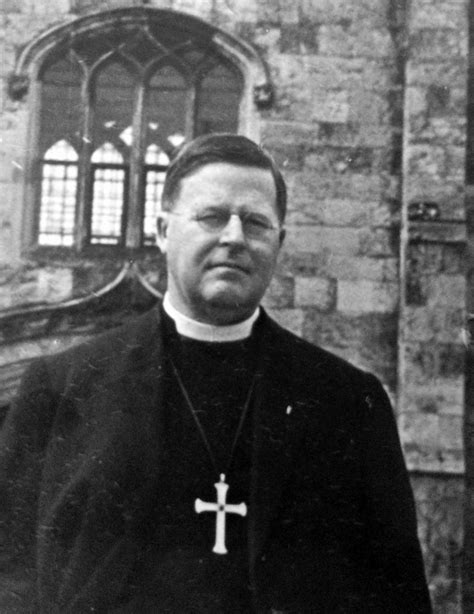A Quote by D. A. Carson
The person who loves his life will lose it: it could not be otherwise, for to love one's life is a fundamental denial of God's sovereignty, of God's rights, and a brazen elevation of self to the apogee of one's perception, and therefore an idolatrous focus on self, which is the heart of all sin
Related Quotes
Whatever a man loves he inevitably clings to, and in order not to lose it he rejects everything that keeps him from it. So he who loves God cultivates pure prayer, driving out every passion that keeps him from it. He who drives out self-love, the mother of the passions, will with God's help easily rid himself of the rest, such as anger, irritation, rancor and so on. But he who is dominated by self-love is overpowered by the other passions, even against his will. Self-love is the passion of attachment to the body.
Worship is the submission of all our nature to God. It is the quickening of conscience by His holiness; the nourishment of mind with His truth; the purifying of imagination by His Beauty; the opening of the heart to His love; the surrender of will to His purpose - and all of this gathered up in adoration, the most selfless emotion of which our nature is capable and therefore the chief remedy for that self-centeredness which is our original sin and the source of all actual sin.
The modern-day gospel says, 'God loves you and has a wonderful plan for your life. Therefore, follow these steps, and you can be saved.' Meanwhile, the biblical gospel says, 'You are an enemy of God, dead in your sin, & in your present state of rebellion, you are not even able to see that you need life, much less to cause yourself to come to life. Therefore, you are radically dependent on God to do something in your life that you could never do.
The whole story of creation, incarnation, and our incorporation into the fellowship of Christ's body tells us that God desires us, as if we were God, as if we were that unconditional response to God's giving that God's self makes in the life of the Trinity. We are created so that we may be caught up in this, so that we may grow into the wholehearted love of God by learning that God loves us as God loves God.
Follow Christ in the denial of all the wills of self, and then all is put away that separates you from God; the heaven born new creature will come to life in you, which alone knows and enjoys the things of God, and has his daily food of gladness in that manifold blessed, and blessed, which Christ preached on the mount.
Whilst a man is persuaded that he has it in his power to contribute anything, be it ever so little, to his salvation, he remains in carnal self-confidence; he is not a self-despairer, and therefore is not duly humbled before God, he believes he may lend a helping hand in his salvation, but on the contrary, whoever is truly convinced that the whole work depends singly on the will of God, such a person renounces his own will and strength; he waits and prays for the operation of God, nor waits and prays in vain
It hath been said, that there is of nothing so much in hell as of self-will. The which is true, for there is nothing else there than self-will, and if there were no self-will, there would be no Devil and no hell. When it is said that Lucifer fell from Heaven, and turned away from God and the like, it meaneth nothing else than that he would have his own will, and would not be at one with the Eternal Will. So was it likewise with Adam in Paradise. And when we say Self-will, we mean, to will otherwise than as the One and Eternal Will of God willeth.
The very act of faith by which we receive Christ is an act of the utter renunciation of self, and all its works, as a ground of salvation. It is really a denial of self, and a grounding of its arms in the last citadel into which it can be driven, and is, in its principle, inclusive of every subsequent act of self-denial by which sin is forsaken or overcome.
James says, "You desire and do not have; so you kill" (Jas. 4:2). We kill marriages and we kill unborn babies because they cut across our desires; they stand in the way of our unencumbered self-enhancement. And we live in a culture where self-enhancement and self-advancement is god. And if self-enhancement is god, then the One who is at work in the womb shaping a person in His own image is not God and the assault on His work is not sacrilegious, but obedience to the god of self.
Most of us love a non-self, or something extrinsic and apart from our inner life; but a mother's love during the time she is a flesh-and-blood ciborium is not for a non-self but for one that is her very self, a perfect example of charity and love which hardly perceives a separation. Motherhood then becomes a kind of priesthood. She brings God to man by preparing the flesh in which the soul will be implanted; she brings man to God in offering the child back again to the Creator.
To become conscious of God, to become God's consciousness, to become God, to be God and to be beyond God, God being beyond God, God having an existence separate from the creation, to be that, to merge with that, to lose one's self and find one's self endlessly again and again in that is self-realization.




































